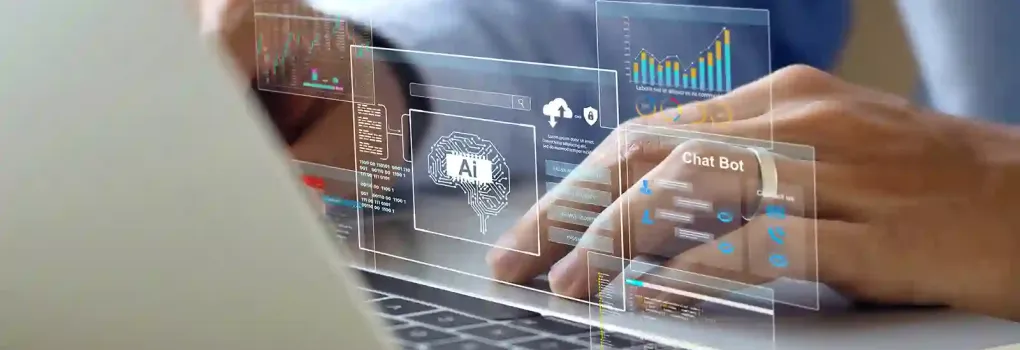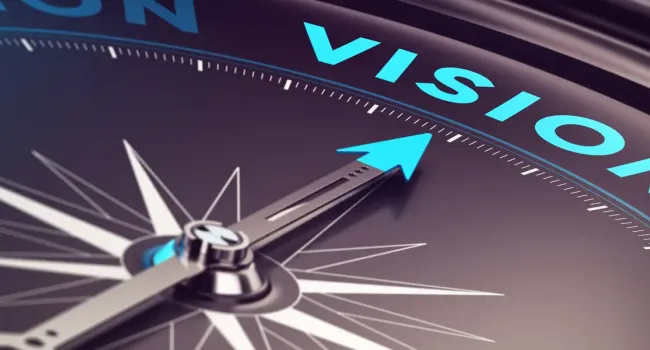Leveraging Google Ads Automation in 2024

When it comes to marketing your pest control business online, every click counts and every conversion matters. Pay-per-click (PPC) advertising, where you pay a fee each time a potential lead clicks on your ad, is an important part of any digital marketing strategy. In fact, 65% of high-intent searches will click on a PPC ad, and those visitors are 50% more likely to purchase compared to organic search visitors.
This is why it’s so important to adapt to changes in paid advertising. Right now, Google is favoring campaigns that use automation, so your business must adopt these features to maximize the effectiveness of your PPC campaigns. In this blog, we’ll take a look at PPC automation, why it’s important, and how you can leverage this powerful tool to your advantage in 2024.
Exploring Automation Options
First things first: What exactly is PPC automation? At its core, it's the use of Google's machine learning to supercharge your ad campaigns. Whether it's managing bids, testing ad copy, or analyzing performance, automation offers a suite of tools to streamline your advertising efforts, including:
Automated Bidding:
Managing bids is the most common way to incorporate automation in Google Ads. Here’s how it works: Google Ads functions like an auction, with companies bidding against each other on the keywords they want their ads to show up for. Companies can set bids based on specific goals—increasing metrics like clicks, improving visibility, or maximizing conversions, for example—as opposed to manual bidding, where you set the maximum bid amount based on your entire ad group, individual keywords, and/or placements. Deploying an automated bidding strategy lets Google’s algorithm automatically find the optimal bids for your ads based on your budget and targets.
Ad Copy and Creative:
Google also offers automation capabilities with advertising copy and creative. One example of this is the use of responsive search ads, which let you enter up to 15 headlines and 4 descriptions that Google will automatically test different combinations of. Over time, Google’s machines learn which combinations perform best; eventually, it will show the top-converting ads to prospective customers. This improves your ad quality and increases your conversion rate.
Audiences:
Through Google, you can also tap into automation options for specific audiences or groups you want to target. Google can own the targeting and exclusion of certain audiences, helping you identify and reach the people most interested in your services and segment them into groups based on their behaviors, interests, and intent.
Reporting:
There are also several options for generating automated reports in Google Ads; you can set them up to deliver performance data on a regular cadence. Automated reporting ensures you get frequent feedback on your PPC performance while saving your digital marketing team time, so they have the bandwidth to analyze the reports, consider the bigger picture, and plan for future improvements.
Benefits and Drawbacks of Automation
Like any technological innovation, automation has its own pros and cons.
What are the top benefits of automation when it comes to Google Ads?
- Automation allows marketers to spend less time on manual tasks and campaign maintenance and more time developing strategies for top performance. It also enables them to manage more campaigns and platforms simultaneously.
- Leveraging automated technology enables you to process large datasets faster and with greater accuracy than humans can.
- Automation lets you manage and update more campaigns as your company grows without risking quality or performance. To understand the full impact of your automated campaigns, learn how to determine marketing ROI for your lawn care or pest control company.
- Utilizing automation in Google Ads opens up access to Google’s massive algorithm, which enables you to tap into Google’s vast resources and real-time data to make smarter, data-driven decisions that are likely to lead to more successful campaigns.
- Automation allows you to bid in real time and continuously update bid strategies, audience targeting, and ad copy, which often leads to better performance over time.
- Using automated features in Google Ads also means faster testing and reporting, which ultimately can help you make quicker, more informed decisions.
However, automating is not without its challenges.
- Automation requires time and data, which are not necessarily negative but do need to be considered. Google’s machine learning needs relevant data to run successfully because it relies on previous performance to make informed decisions. If you do not provide Google with the time and data needed to run automated campaigns, it’s less likely that Google will make smart decisions on your behalf.
- Automation takes power away from advertisers and gives that power to Google. While access to Google’s algorithm and database is a huge benefit, it comes at the cost of control and transparency in the bidding process.
- Implementing automation requires a fair amount of upfront work and effort to set up successfully, including clearly defining your business goals and gathering the data needed to run effective automated campaigns. It’s not as simple as flipping a switch!
- For companies with smaller budgets, automated bidding might not be the best strategy. Smaller budgets limit the system’s ability to make real-time adjustments to compete effectively in keyword auctions. Our team at Coalmarch recommends a monthly budget of at least $3,000 to run automated bidding campaigns effectively.
- Most importantly, automation can’t fully understand your business and its goals. Your extensive knowledge of your specific business goals and industry insights is crucial to implementing a PPC strategy that will maximize performance, whether you leverage automation or not. Therefore, automation should not be seen as a “set-it-and-forget-it” solution. For it to work successfully, you must dedicate someone to manage your PPC campaigns who has a proficient understanding of both paid advertising and the ins and outs of your specific industry.
Mastering Best Practices
So, how can we ensure we're harnessing automation to its fullest potential? It all starts with setting realistic performance goals and feeding the machine with accurate data. Whether you're launching new campaigns or fine-tuning existing ones, patience and diligence are paramount. Here are the best practices to consider when you are considering adding automation to your toolkit for 2024:
During The Setup Process:
- Reflect on your business goals to set realistic performance expectations. Your goals will drive your PPC strategy and help you or your marketing partner determine a budget, optimize your top services or markets, set realistic lead flow and cost-per-lead expectations, and more.
- Give it enough time and data. Our team recommends giving new campaigns several weeks to run before making major changes. During the first few weeks of a new campaign, Google Ads adjusts to optimize your bids, gathers data on which ad copy converts best, and learns more about the keywords that drive valuable potential customers to your landing pages.
- Ensure everything ties back to your business goals. This includes goal tracking, performance, budget allocation, bidding strategies, and the use of automation. It’s important to understand how these factors play into your overall strategy and how to make adjustments as your goals change over time.
For maintenance and ongoing strategy:
- Ensure your digital marketing team frequently monitors your campaigns to keep machine learning helping you achieve your business goals.
- Design your campaign strategies to enable automation for peak performance.
- Partner with a marketing company that understands how to use automation most effectively and will help create solid marketing strategies.
Automation isn't just the future of digital marketing—it's the present. By embracing its power, we can unlock new levels of efficiency, performance, and success. But remember, automation is only as effective as the strategy behind it. By partnering with experts like Coalmarch by WorkWave, you can tap into their insights and tailor campaigns to your specific business goals. Contact us today to get the conversation started and find out how we can help you leverage automation to its best advantage as part of a holistic marketing strategy designed for your growth.




